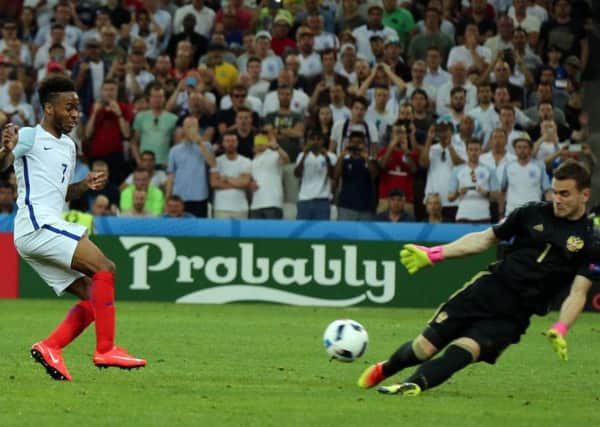Kevan Christie: Danger of alcohol's links with sport being noticed by children


The relationship is ingrained in the psyche of the Scottish football fan, particularly those of a certain age.
Now, a new report highlights the ways in which the drinks giants cunningly managed to circumvent some of the strictest alcohol advertising laws in the world to promote their product during the Uefa Euro 2016 championships in France. The Loi Évin rules passed in 1991 enforce limitations around any forms of alcohol marketing targeted towards young people, restrict messages and insist on health warnings.
Advertisement
Hide AdAdvertisement
Hide AdThe report states that the alcohol companies got round this by using the concept of “alibi marketing” whereby indirect references are used to promote a product, rather than the more conventional logo or brand name. Carlsberg, one of ten key sponsors of the tournament, was unsurprisingly the most featured brand with a whopping 96 per cent of all references to alcohol containing the Danish brand over the 18 matches studied in the UK.
Their “Probably the best in the world” slogan in trademark green and white hit the back of the advertising net from the sidelines, as play raged on – without so much as mentioning the brand... If Carlsberg did subliminal.
Incredibly, 10 per cent of the total broadcast time during Euro 2016 football programmes contained an alcohol reference. This was achieved in the main by electronic pitch-side advertising boards, static visuals or branded merchandise like football shirts worn by the crowd.
The term “alibi marketing” was first coined in the 1990s after the practice of promoting tobacco products on Formula One cars emerged. A high-profile example of this concerns Ferrari’s use of a barcode logo on their cars to promote Marlboro with the firm denying accustaions of subliminal marketing. Although Ferrari have denied using the barcode to promote Marlboro, the tobacco company Philip Morris continues to sponsor their Formula One team.
Hollywood has been at this for decades with their “subtle” product placement – Heineken reportedly paying $45m for James Bond to put down his martini in Skyfall and drink a bottle of beer.
What’s worrying about these findings from a Scottish perspective, and researchers from Stirling University took part along with Scottish Health Action on Alcohol Problems, is that alcohol sponsorship reaches children. That’s the last thing we need as more kids seek to emulate their football heroes, with clear links between alcohol and a plethora of health horrors.
A 2015 survey conducted by Alcohol Concern found that half of the 837 children aged ten and 11 in England and Scotland who took part associated beer brands with their favourite football teams and tournaments. Around one in two of them made a link between Carlsberg and the England team.
Carlsberg say they strictly applied the Loi Évin and did not advertise their beer brands and never linked the partnership with the tournament to alcohol.
All well and good for the Danes – but the relationship between our national sport and Scotland’s troubled booze history is anything but subliminal.